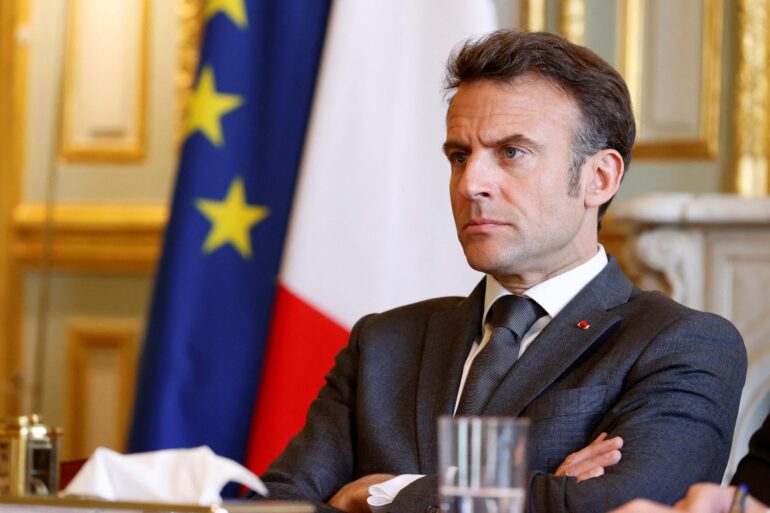TL;DR:
- French President Emmanuel Macron announced increased investments in AI and green technologies to counter the dominance of China and the United States.
- Macron revealed plans to mobilize funding for AI development, including €7 billion for top-of-the-range French technologies.
- France aims to create AI clusters, attract generative AI investments, and enhance supercomputing capabilities.
- The “Tibi 2” program will redirect €7 billion of institutional investors’ funds to the real economy, leveraging it to create €35-40 billion in concrete investments.
- The EU’s AI Act, which focused on regulating AI technology, progressed to the final stage of the legislative process.
- Macron favored a regulation that protects fundamental values, such as prohibiting “racist or antisemite biases.”
- Macron emphasized the need to address global protectionism and increase subsidies for green industries.
- The “France 2030” investment and state aid strategy, worth €54 billion, aims to support critical projects for the country’s sovereignty and autonomy.
- Talent development and gender balance in tech remain areas of concern.
Main AI News:
In a bold move to counter the dominance of China and the United States, French President Emmanuel Macron unveiled his strategic vision on Wednesday (14 June), outlining France’s increased investment in artificial intelligence (AI) and green technologies. Speaking at VivaTechnology, a renowned annual business event that showcases French, European, and global tech innovation, Macron emphasized the mobilization of funding to propel the development of AI. Additionally, he announced a substantial infusion of over €7 billion into cutting-edge French technologies.
Highlighting the insufficient private liquid capital allocated to new technologies in Europe, Macron acknowledged that risk-averse investments hinder the region’s progress. To address this issue, the president pledged a substantial amount of funding for AI investments and an upgrade of French AI capacities. This includes a €500 million allocation to establish between five and ten AI clusters, €40 million to attract investment in generative AI, and two state subsidies amounting to €50 million and €500 million respectively to enhance the capabilities of supercomputers. Macron also presented the ambitious Tibi 2′ program, where institutional investors, controlling a staggering €5,000 billion of French citizen savings, committed to redirecting €7 billion of those funds towards the real economy. Leveraging this capital through investment funds, Macron aims to create concrete investments totaling €35-40 billion euros.
The announcement coincided with a crucial milestone for the European Union (EU) as the AI Act, the flagship initiative to regulate AI technology based on its potential to cause harm, progressed to the final stage of the legislative process. Earlier that day, Jean-Noël Barrot, the Minister for the Digital Economy, cautioned against overly stringent regulations that could stifle AI innovation. Macron echoed this sentiment, expressing his preference for regulations that protect fundamental values and prohibit “racist or antisemite biases.”
While the AI Act raises concerns among industry insiders, such as Arthur Mensch, founder of Mistral AI, who fears that excessive regulation could impede innovation, Macron stressed the importance of placing his remarks within the context of global protectionism. In this competitive landscape, China has faced accusations of heavily subsidizing its green industries, while the United States passed the Inflation Reduction Act (IRA), a comprehensive package of subsidies and tax breaks last year. Furthermore, several heavyweight economies, including Japan, have committed substantial subsidies to drive their green transformation.
However, Macron recognized that both France and the EU are lagging behind the United States and China in terms of subsidies, with the United Kingdom marginally outperforming France. To address this, Macron introduced the “France 2030” investment and state aid strategy, amounting to a remarkable €54 billion, with €18 billion already invested in over 2,800 critical projects vital to the country’s sovereignty and autonomy strategy.
Conclusion:
France’s ambition to boost AI and green tech reflects its determination to challenge China and the United States. The increased investments and strategic initiatives indicate France’s intent to position itself as a formidable player in the global tech sector. The focus on AI development, regulatory considerations, and subsidies for green industries signal potential market opportunities and competitiveness for businesses operating in these sectors. However, addressing talent development and gender imbalance in tech will be crucial for sustained growth and innovation.

